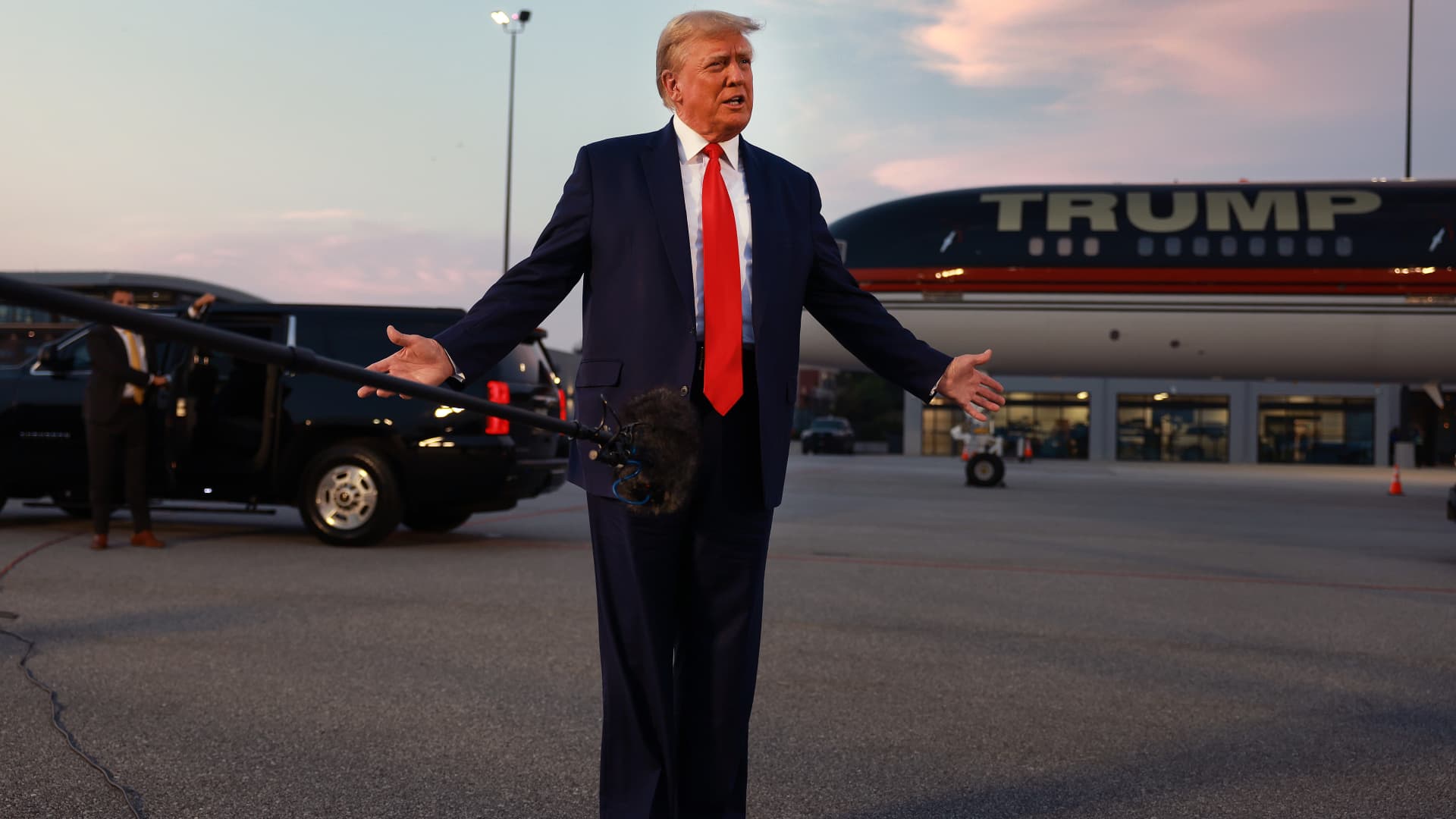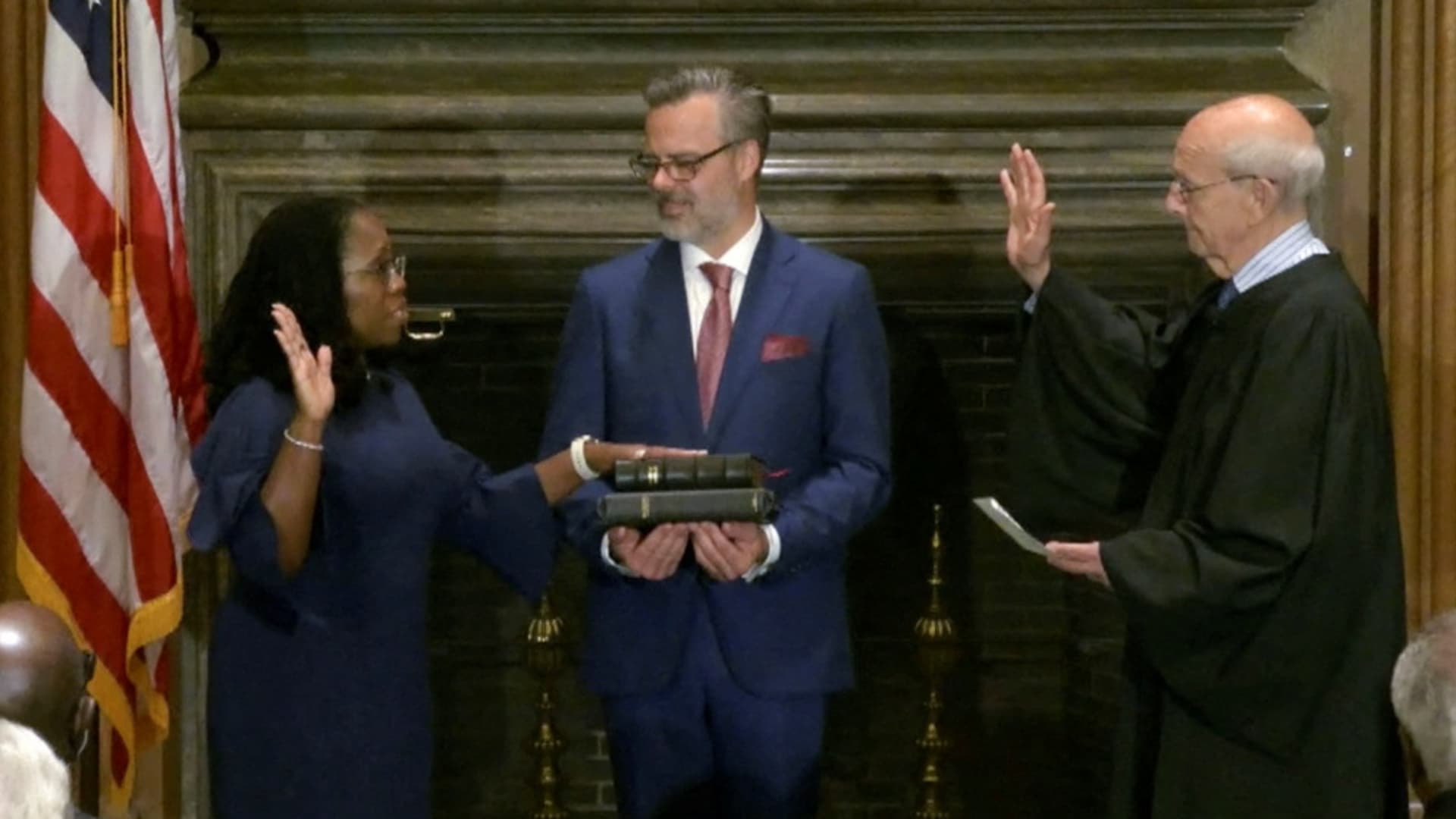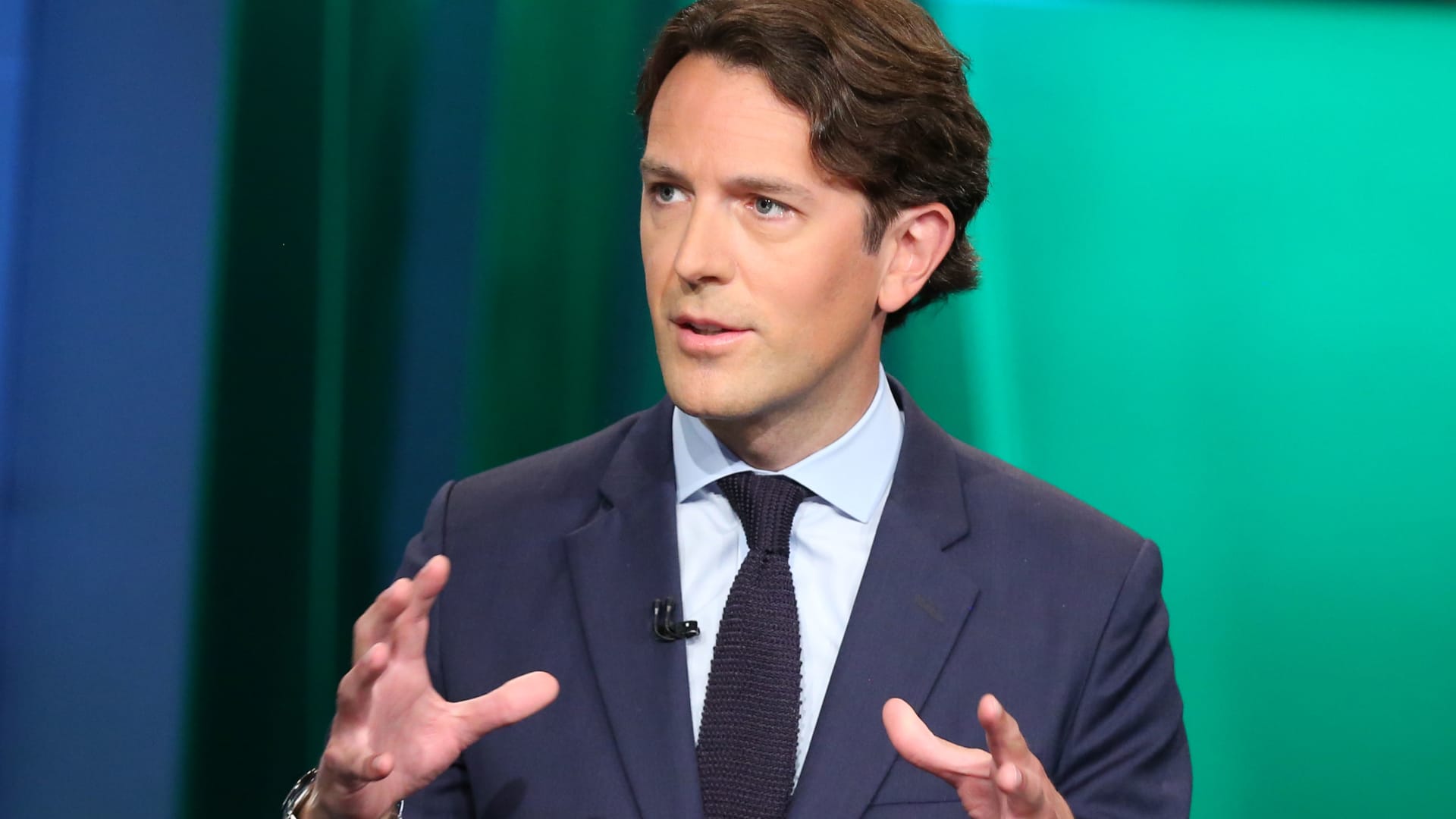US Markets
Monday, August 28th, 2023 9:03 am EDT

Donald Trump will be arraigned Sept. 6 in the criminal case where he is accused of conspiring to overturn the result of the 2020 presidential election in Georgia, a state court docket showed Monday morning.
The other 18 defendants in the case will be arraigned later that same day in in Fulton County Superior Court in Atlanta.
The scheduling order was released shortly before a federal judge in Washington, D.C., scheduled Trump’s trial there on charges related to trying to reverse his 2020 national election loss to begin on March 4.
Trump’s arraignment in Atlanta will take place at 9:30 a.m. ET. on Sept. 6 The former president will be asked to enter a plea at that time to the 13 felony charges he faces.
His former lawyer Rudy Giuliani will be arraigned at 9:45 a.m., the court docket shows.
The other 17 defendants in the case, who include Trump White House chief of staff Mark Meadows, other Trump-allied lawyers, and would-be Electoral College voters for Trump, are scheduled to be arraigned starting at 10 a.m.
Steven Sadow, Trump’s attorney in the case, did not immediately respond to a request for comment about the arraignment.
Trump and the other defendants were indicted two weeks ago by a grand jury in Fulton County on charges related to an alleged criminal enterprise that sought to overturn his 2020 loss to President Joe Biden in Georgia.
Trump and his lead campaign lawyer, Giuliani, had targeted Georgia and several other swing states won by Biden in an effort to pressure state officials, legislators and judges to effectively reverse Trump’s losses in those states. The states provided Biden with his margin of victory in the Electoral College, the entity that actually determines winners in U.S. presidential elections.
All 19 defendants in the case surrendered in Atlanta last week to be booked. Eighteen of them were released on bonds of varying amounts.
Just one of them, Harrison Floyd, remains in Fulton County Jail after he was denied release.
Floyd is being kept in custody because, among other things, he did not reach a bond agreement with the district attorney’s office ahead of his surrender.
This post has been syndicated from a third-party source. View the original article here.




